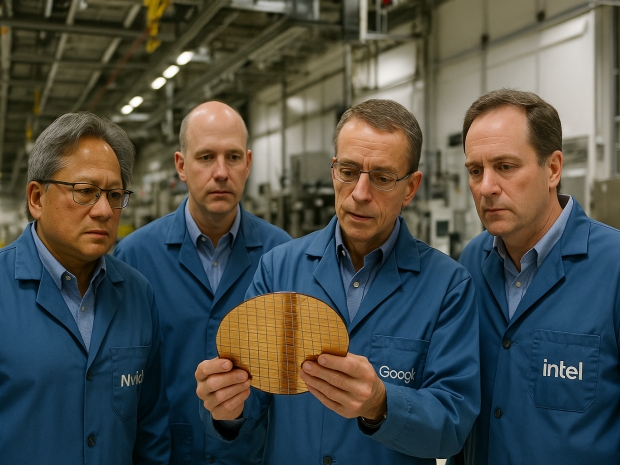According to Korea’s ChosunBiz, Intel is now in talks with Microsoft, Google, and Nvidia to fab chips on the upcoming 18A node, a potential rival to TSMC’s 2nm N2 process. The news comes as Chipzilla tries to elbow its way back into relevance, especially in the US market, where the Taiwanese juggernaut has gained traction thanks to sweet deals and political cuddling with Trump.
Intel’s 18A node, billed as the “most advanced process manufactured in the US,” was shown off at Direct Connect 2025 and is supposed to deliver SRAM density and performance on par with, or better than, TSMC’s most cutting-edge gear. Compared to Intel 3, it’s apparently lightyears ahead, which is just as well considering how little traction that process managed.
The sudden uptick in interest isn’t just about specs. The appointment of Lip-Bu Tan as CEO seems to have focused Intel’s attention where it should’ve been all along: EDA tools, packaging, and serious foundry services. Whispers suggest Tan might even shelve the company’s flailing IDM 2.0 strategy in favour of something that doesn’t involve trying to do everything badly at once.
There’s also a bit of opportunism going on. TSMC’s fabs are currently bursting at the seams, forcing major customers to look elsewhere. While Samsung Foundry is still trying to shake off its also-ran status, Intel’s got a rare opening—one it might actually be able to exploit this time.
If 18A lands as promised, it could put Chipzilla back on the map for high-end silicon. That would be no small feat for a company that’s spent the last decade mostly tripping over its own shoelaces.




